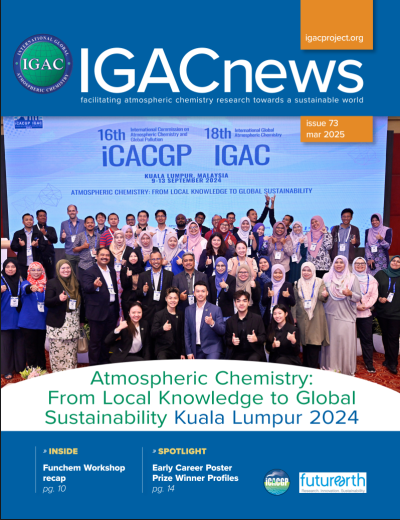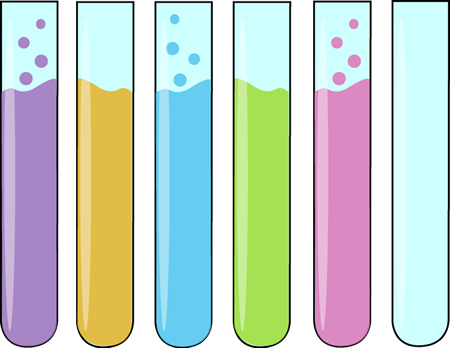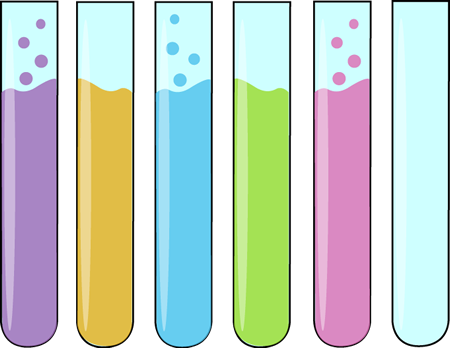Paul Crutzen Award Nominees Open!
The "Paul J. Crutzen Award for Early Career Scientists of the International Commission on Atmospheric Chemistry and Global Pollution" is granted for an outstanding research contribution in atmospheric sciences by an early career scientist. The purpose of the award is to promote scientific innovation in atmospheric sciences for the protection of the environment.
2026 Early Career Short Course Applications Open!
Applications are open for the 2026 IGAC Early Career Short Course (ECSC) September 4-6 2026. Early Career scientists as defined by IGAC for this purpose are currently enrolled Masters and PhD students and researchers within 3 years of graduation from a Masters or PhD program. Applications due March 1, 2026. Note: Early Career scientists chosen for the short course will have their travel (airfare, rail, other) to the venue paid for and hotel plus several meals covered for the short course duration.
The International Global Atmospheric Chemistry project comments on the revised WHO air quality guidelines
The International Global Atmospheric Chemistry project comments on the revised WHO air quality guidelines
Clare Paton-Walsh, R Subramanian, James H Crawford, Laura Dawidowski, H Langley DeWitt, Lisa Emberson, Louisa Emmons, Rebecca M Garland, Yugo Kanaya, Aderiana Mbandi, Kerri A Pratt, Nestor Y Rojas, Abdus Salam, Kateřina Šindelářová, Vinayak Sinha, N'Datchoh Evelyne Touré, Liya E Yu and Mei Zheng

IGAC Relevant
-Composition Air quality Climate inTeractions Initiative (CACTI): Emissions to Response
The overall goal of CACTI is to quantify and advance the scientific understanding of the global and regional forcing, climate and air quality responses, and Earth System feedbacks due to atmospheric composition and SLCF emission changes. Specifically, our research contributes to any of the three specific CACTI goals to:
IGAC Relevant
-14th Asian Aerosol Conference
Indian Aerosol Science and Technology Association in collaboration with Asian Aerosol Research Assembly announces the 14th Asian Aerosol Conference, AAC-2025 scheduled during December 2-5, 2025 at Mumbai. Save the dates. More updates very soon.
IGAC Relevant
CAMS EvOlution (CAMEO) Horizon Europe Project online workshop
An online workshop to present the atmospheric emission uncertainty products developed as part of the CAMS EvOlution (CAMEO) Horizon Europe project, coordinated by ECMWF.
IGAC Relevant
-BACO2025
Busan IAMAS-IACS-IAPSO Joint Assembly
The Busan IAMAS-IACS-IAPSO Joint Assembly 2025 will be an
important opportunity to not only draw deep scrutiny to activities
which are harmful to our earth, but also to pose solutions for the
healthy coexistence of earth and humankind.
Abstract deadline 15 February 2025
IGAC Relevant
-European Geophysical Union General Assembly 2025
The EGU General Assembly 2025 brings together geoscientists from all over the world to one meeting covering all disciplines of the Earth, planetary, and space sciences. The EGU aims to provide a forum where scientists, especially early career researchers, can present their work and discuss their ideas with experts in all fields of geoscience.

